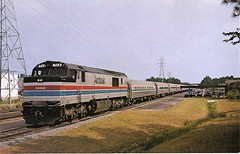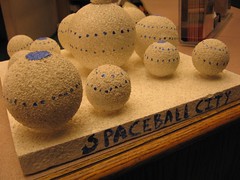
Speakers: Jill Morris & Emily Guhde, NC Live
NC Live is a multi-type library consortium that includes public and private universities as well as public libraries. Everything they provide is provided equally to all libraries across the state.
They wanted to figure out how to better manage the resources, both financial and scholarly. They wanted to be able to offer advice to libraries on better accessibility of the resources like authentication and discovery. They wanted to determine what kind of use should be expected for a library or library type, and how to improve it.
They did not want to determine if a library’s use is good or bad, or to compare databases with each other. They also didn’t want to define the value of the provided database or explain why certain factors may impact database use, but they do hope to get to these things in future iterations of the study.
They began by trying to identify peer groupings of NC libraries based on information about the libraries, population served, degrees offered. These peer groups were then created by a working group of librarians from across the state. Some of the libraries were not included because they were incomparable.
The next objective was to determine what data points would be used to measure usage of each of the databases (they were going to study only five that were broadly applicable across all members of the consortium). For academics, they looked at full-text use per full-time enrollment, but for publics they did something different that I didn’t capture before the speaker moved on. See the study for details.
No one library was at the top or bottom of their peer group for usage across all resources studied. The use of the databases varied wildly, even among peers. The feedback from the consortium members indicated that flexible peer groups might be more useful than permanent peer groups based on what they are wanted to analyze at the time.
Finally, they looked at the qualities of the high usage libraries (top third of peer groupings), such as their access & authentication, size of collection, outreach & support, community characteristics, and library characteristics.
Use of Academic Search Complete was higher in community college libraries with these characteristics:
- librarians attend faculty meetings
- have an NC Live representative
- high number of total information services per FTE
- high number of circ transactions per FTE
Trends in community college libraries for all five databases:
- embedded librarians in courses
- librarian-initiated engagement
- library orientation
- librarians attending faculty meetings
Use of Academic Search Complete was higher in four-year college and university libraries with these characteristics:
- authenticate with local proxy
- direct link to NC Live provided resources
- high number of librarians per 1000 enrolled student
- NC Live representative
Trends in four-year college and university libraries for all 5 databases:
- higher use with local proxy authentication and federated search service
- lower use with a link to NC Live website database list instead of individual linking; authentication with a password; displaying an NC Live search box; essentially, less customized services which may indicate fewer tech staff to support eresources
Trends for higher use of Academic Search Complete among all schools:
- authentication with a local proxy
- total library expenditures per FTE
- UNC institution
- NCICU institution
Use of Academic Search Complete was higher in public libraries with these characteristics:
- direct links to the resources
- chat reference box
- high number downloads of stats from the NC LIVE website
- high number of promotional items requests
- staff training for NC LIVE provided resources
Trends in public libraries for all 5 databases:
- percentage of legal service population with a bachelor’s degree
- number of stats downloads
- population density
- and total operating expenditures per legal service population
Next steps: Planning for future consortium services related to usage data. Need to understand more about what libraries need from them. They plan to share their findings and offer best practices for member libraries. Finally, they plan to develop usage reports and other data that are helpful for collection assessment at both the library and consortium levels.
Recommendations for future research: Libraries need to be better informed consumers of database and set goals for use. We need to work with each other and vendors to develop use and/or cost per use profiles. Similar studies should be done elsewhere to allow for comparison of results that might help explain why the variables are impacting use.


